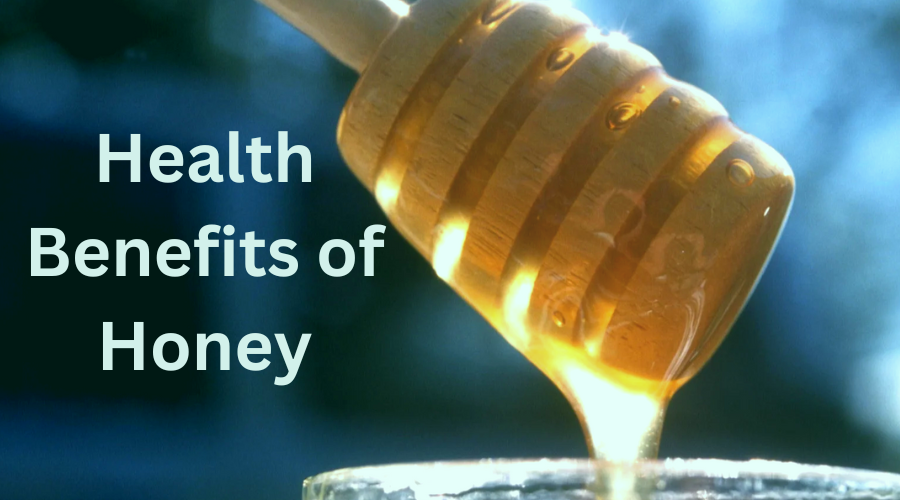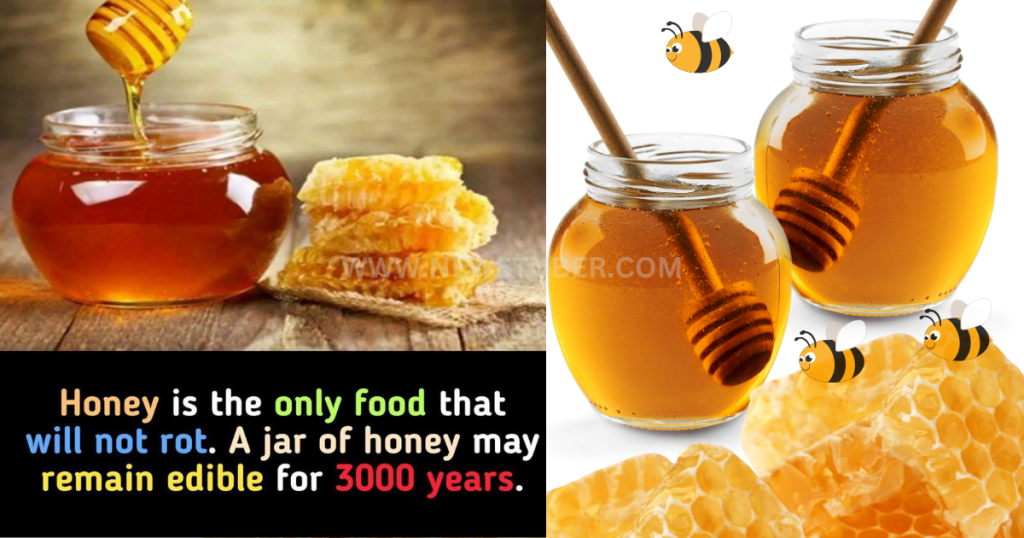Honey is more than just a sweet tasty food or a healthy natural food supplement. It is that unique product which has for centuries been adored by numerous civilizations of the planet. This sweet delight that has benefited from the table, and benefited from medicine, has only further consolidated its status as literally food and remedy. In this article, we will understand the interesting aspect on honey, why it do not perish and its role in the course of history.
What Is Honey?
Honey is actually a non-honey bees secretion of bees that originate from the flowers’ nectar. The process begins when bees collect nectar from flowers and this is usually converted to simple sugars through enzymatic action. The bees then store the nectar in hexagonal wax cells in their hives and more information can be obtained at; Eventually, the moisture in the nectar dries up, yielding a thickened product rotating as honey, just as it is rotated.
Honey also contains many vitamins and minerals such as vitamins c, calcium, iron, potassium, magnesium, sodium, Vitamin B2, B3, B5, B6, and folic acid as well as some antioxidants and amino acids.
The Health Benefits of Honey

- Antioxidant Powerhouse
Antioxidants include phenolic compounds, flavonoids, and organic acids are the major antioxidants compounds present in honey. Some of these antioxidants contribute to the elimination of free radicals, stimuli responsible for oxidative stress and the harm they cause to cells throughout the body. This can help to avoid chronic diseases such as heart disease cancer, and premature aging, because stress has its toll on the body.
The darker the honey, the higher antioxidant contents it normally has. For instance, comparisons tests reveal that buckwheat honey contains more antioxidant compounds than clover honey.
- Natural Energy Boost
Honey is a rapid, easily assimilative form of food value and therefore, can supply quick energy. This drink has glucose and fructose which are two mono-saccharides which are readily assimilated in the circulatory system. Glucose gives a fast energy to the system while fructose gives a steady energy intake to the system.
A good example is its use by athletes in their workout sessions and during ordinary endurance events because honey is a natural source of energy which replenishes glycogen storage in muscles and liver.
- Antibacterial as well as antifungal activity
Science has well evidenced the fact that honey has antimicrobial agents. Chapters 3–5 This essential oil has been regarded as a topical antiseptic and used for coping with the skin injuries, burns, and inflammation for centuries. Thus, the elevation of honey’s antibacterial effect consists in increased level of sugar, lower pH and hydrogen peroxide that appears as the result of the activity of enzymes on glucose.
The kind of honey that is known to have some antibacterial effects is the **Manuka honey** from New Zealand. Manuka honey contains the methylglyoxal (MGO), which is an important compound that has good antimicrobial action. They enjoy promising results against different types of bacteria, including the antibiotic-resistant ones.
Orally, honey have also been used as a remedy for sore throat and cough and for the treatment of digestive complaints due to honey’s ant-inflammatory property to eliminate inflammation in different body organs.
- Digestive Health

Honey has potential to help treat stomach problems without making it worse. Used as a food supplement, it contains natural enzymes that make digestion easy while at the same time boosting the growth of the right bacteria in the stomach. It also has some antimicrobial properties and traditional medications employ honey to cure indigestion, ulcer, and acid reflux.
These are usually prepared from honey and warm water and people are advised to take them as they act on the stomach lining. Moreover, honey is sweet and contains prebiotic substances that are beneficial to the healthier gut bacteria enhancing digestion and improving the gut health.
- Skin Care
Honey has been used topically as a beauty treatment for many years. Naturally, it is effective for reducing inflammation and also for combating bacterial infections and is perfect for hydration in skincare regimes. Honey can also remedy acne, dry skin and eczema because it can contains anti-inflammatory properties and inhibits bacterial formation.
Honey also has humect properties; it is a natural absorbent for moisture in the air capturing it on the skin. Honey is also used on its own on the skin and hair Since applying honey directly to the skin can improve the skin, it is added in face masks, moisturizers, and hair care products.
A few other works point out that honey can enhance the quality of sleep that one is able to have. Another item on the list is honey before you sleep that has an effect on the production of melamine which regulates sleep because of the natural sugar in honey. In addition, honey also stimulates a slow and steady release of insulin, which in turn increases the availability of tryptophan an amino acid that is used to synthesize serotonin in the body and converted through the brain to melatonin.
Notably, honey has the cognitive boosting effects, especially in elderly individuals. The constituents and flavonoids in honey may help shield the brain from the damaging effects of stress and free radicals that may lead to mental disorder and memory loss.
Why Honey Does Not Rot: Science Interest on the Conservation of the Species
It is interesting to note that honey is very tested and has one of the longest shelf life among foods. Honey is perhaps one of the few natural food products that can literally last for ever without undergoing decay or sporing because pots of honey have been recovered from tombs of ancient Egyptians and these are as good as new till now. But what makes honey so aseptic?
- Low Moisture Content
It is well known that the moisture content of fresh honey ranges from 16 to 18%. It also characterised by very low moisture level which are not friendly to growth of bacteria or mold which are microorganisms. In the absence of moisture, which serves as a medium in growth and multiplication of most pathogens, honey does not get spoilt.
- High Sugar Content
The major constituent of honey is sugars and sugars are hygroscopic in nature, that means they have got tendency to absorb water from its surroundings. This high sugar concentration makes the surroundings a hostiles environment for Bacteria and Fungi because the environment is more than a sugar solution of 90% which is hostile to most microorganisms. In other words, honey preserves honey naturally, or more to the point, Manuka honey preserves Manuka honey.
- Acidity
Very interestingly, honey is not sweet, and it has a pH level of between 3.2 and 4.5: this is slightly acidic. It also has a low pH, which inhibits the growth of bacteria and molds, which in turn the ability to resist spoiling.
- Hydrogen Peroxide Production
Anytime that honey has contact with moisture, it creates hydrogen peroxide, a natural antibiotic that kills bacteria. This coupled with the low pH, and high sugar concentration that is paradoxically used in the production of hydrogen peroxide, kills many microorganisms.
- The second category is Antibacterial Compounds which includes Methylglyoxal.
Specific kinds of honey such as Manuka honey bear natural antibiotics such as methylglyoxal (MGO). These compounds are a further defense against microbial penetration and therefore honey’s conservation attribute.
How long can honey remain fresh?

If it is sealed properly it is said to have properties of everlasting, ‘eternity,’ so to speak. The secret of keeping honey for longer duration is to make sure, the top of the container is well sealed and then stored in cool and dry area. Indeed after sometimes honey may crystallize but it is normal and does not mean that honey has gone bad. If crystallized the honey tends to be taken back to its liquid form by warming the honey in hot water.
Honey was much valued in ancient Greece according to the philosophers, the physicians and the poets. They Greeks regarded honey so highly that Hippocrates the famous physician used it for therapeutic purposes while Homer, the poet referred to as honey as the nectar of the gods. It can also be used to add flavor for wine and as ingredient in religious ceremonies or offerings to the gods.
Honey is a part of the Indian traditional medicine known as Ayurveda has been mentioned above. Honey also has these therapeutic uses and is used often in combination with other herbs in concoctions and remedies.
Honey’s value persisted up to the medieval period and was mainly used as a sweetener (much before sugar was discovered) and in making the drink called mead, which is made by fermenting honey with water.
Conclusion
Folks, do not just limit honey to being just a sweetner of tea or spread on toast. It is a natural product that can give people many benefits to their overall health such as increased energy and improved skin quality and protection from infections. That honey does not turn sour and can be kept for thousands of years only goes to indicate that it is indeed a product second to none. This sweet delight may be consumed with an antioxidant component for its health benefits, in cooking, or just for the sheer pleasure of enjoying a natural sweetener.


